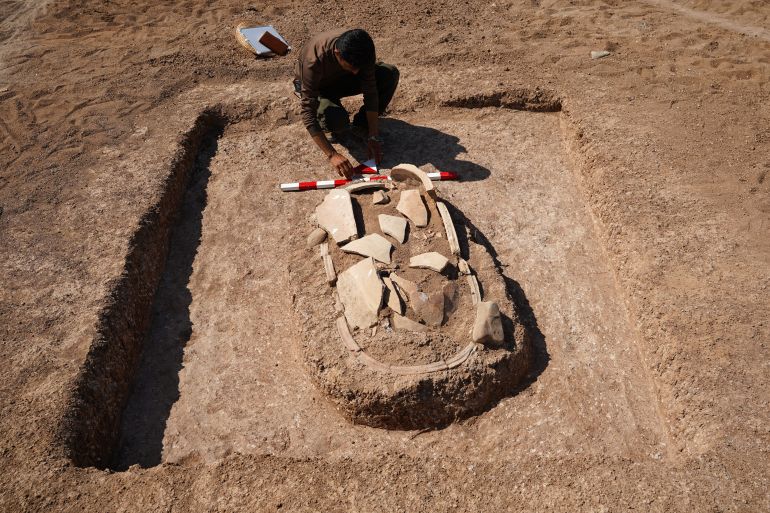The Khanke region of Duhok province in the country’s north, where the tombs are thought to be more than 2,300 years old, were discovered near the Mosul Dam reservoir.
Bekas Brefkany, the director of antiquities in Duhok and head of the archaeological work at the site, stated on Saturday that “we have discovered approximately 40 tombs.”
In 2023, his team surveyed the area, but they only discovered some small fragments of tombs. Only this year’s water levels “to their lowest” this year allowed them to work on the site, according to Brefkany.
Drought makes it possible to perform excavation work.
Due to droughts that have plagued Iraq for five consecutive years, archaeologists have recently discovered ruins dating back to thousands of years in the same area.
“Agriculture and electricity are affected significantly by the droughts,” he says. But it also makes excavation work possible for archaeologists,” Brefkany said.

According to Brefkany, the newly discovered tombs are thought to have been from the Hellenistic or Hellenistic-Seleucid era.
He added that his team is preparing to excavate the tombs so they can be transported to the Duhok Museum for further investigation and preservation before the area is once more submerged.
Iraq, a country that is particularly vulnerable to climate change, has been plagued by rising temperatures, persistent water shortages, and annual droughts.
Authorities have been warned that water reserves were only 8 percent of their full capacity because this year was one of the driest since 1933.
Source: Aljazeera

Leave a Reply